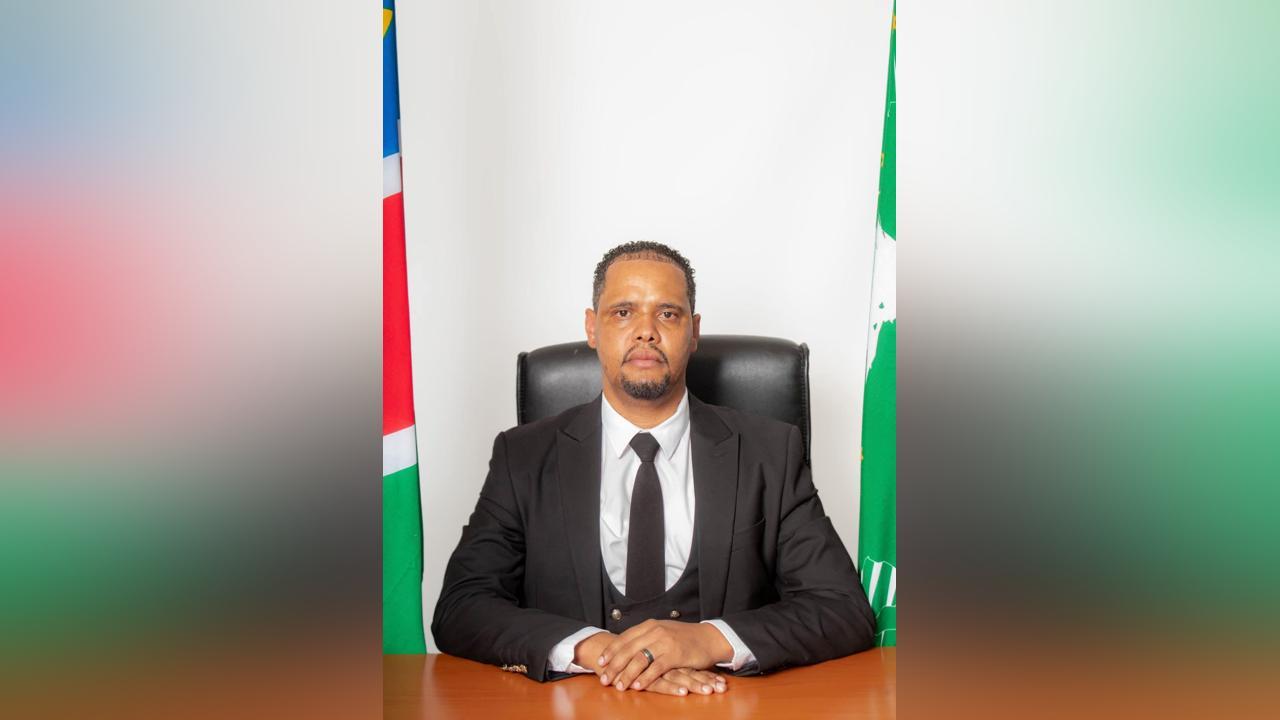Africa-Press – Namibia.
The Judicial Service Commission (JSC), in a significant step towards openness and accountability, last Friday publicly interviewed shortlisted candidates for the position of judge of the High Court.
The oral interviews, conducted at the Supreme Court by a full bench of JSC members, saw three judicial candidates engage rigorously for the final spot.
The candidates were Regional Magistrate Barry B. Mufana, advocate Lotta Ambunda, and Khaepriums Swartz.
The interviewing panel was led by Chief Justice Peter Shivute, supported by Deputy Chief Justice Petrus Damaseb, and JSC members Yoleta Campbell, Elia Shikongo and Sakeus Akweenda.
In a nutshell, Mufana possesses a B.Juris and LLB degree from the University of Namibia. He began his legal career as a public prosecutor in 2006, before joining the Office of the Judiciary as a magistrate in 2009. Since then, he has served in central and northern Namibia as head of stations in Otjiwarongo and Rundu, as well as in an acting capacity in Katima Mulilo.
Mufana, admitted as a legal practitioner of the High Court in May last year, told the panel he has more than 200 pending cases in Rundu and Katima Mulilo courts but expects to finalise most within two months. Questions to him covered principles of bail applications, circumstantial evidence, recusal, and the role of appellate courts.
Ambunda described herself as a symbol of confidence, perseverance and persistence, saying her focus has always been on “what needs to be done.” She holds B.Juris and LLB degrees, a Master’s degree, and a postgraduate diploma in judicial studies.
She told the panel she has long aspired to be a judge, with a strong passion for research and writing. Ambunda has published works under the supervision of Professor Oliver Ruppel during her time at Unam, and co-authored the Civil Procedure Book with Deputy Chief Justice Damaseb. Her experience includes nine years as a research assistant, five years as an advocate, and involvement in implementing the Case Management and E-Justice systems.
Her interview touched on judicial competence, gender imbalances in the courts, and the type of jurisprudence required on the bench.
Swartz, born and raised in Katutura, said his upbringing exposed him to daily police brutality and crime, which fuelled his determination to pursue law and become part of the solution. He holds B.Juris and LLB degrees.
He began his career in 2007 as a prosecutor in the Oshakati Magistrate’s Court at the age of 20, later serving as magistrate in Outjo, senior magistrate in Okahandja, and acting principal magistrate until 2018. After a short period in private practice, he returned to the magistracy, later becoming acting Regional Court magistrate and was then permanently appointed in 2021. In 2023, he moved to the Office of the Judiciary as deputy executive director, a role he held until April this year.
Swartz told the panel he has presided over more than 300 Regional Court cases. His questions focused on Section 174 of the Criminal Procedure Act, evidential inferences, and aspects of the Prevention of Organised Crime Act.
The candidates faced probing questions into their qualifications, professional experiences, and their understanding of legal and constitutional matters.
At the end of the session, Chief Justice Shivute explained conditions of service for judges, noting they do not receive government housing but are entitled to a housing allowance equivalent to that of a deputy minister.
Meanwhile, a training programme for aspirant judges is under way in Windhoek. Running from 20 August to today, it aims to address the judiciary’s shortage of judges and ensure candidates, particularly in the civil stream, are adequately prepared for the High Court bench.
Deliberations on the final candidates have been postponed.
For More News And Analysis About Namibia Follow Africa-Press






